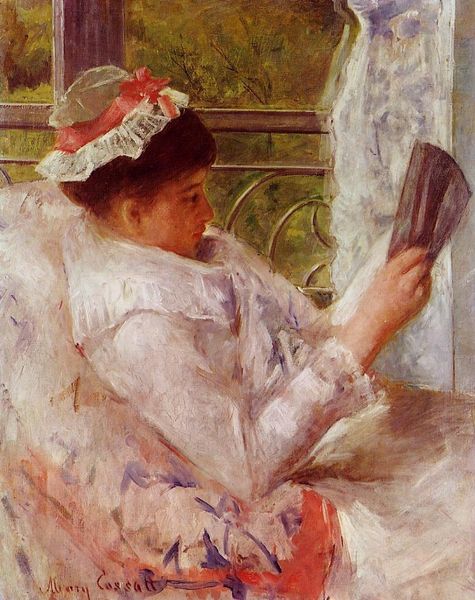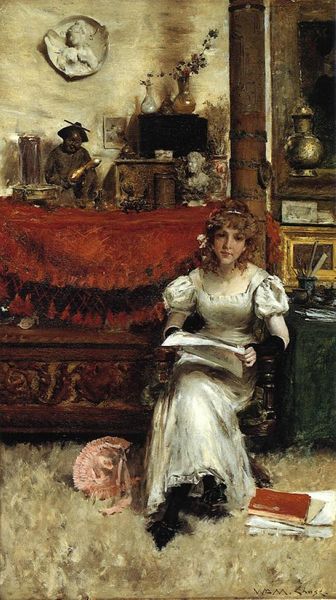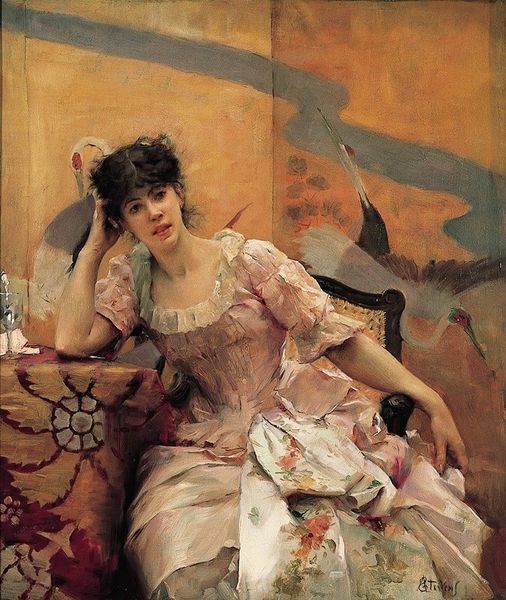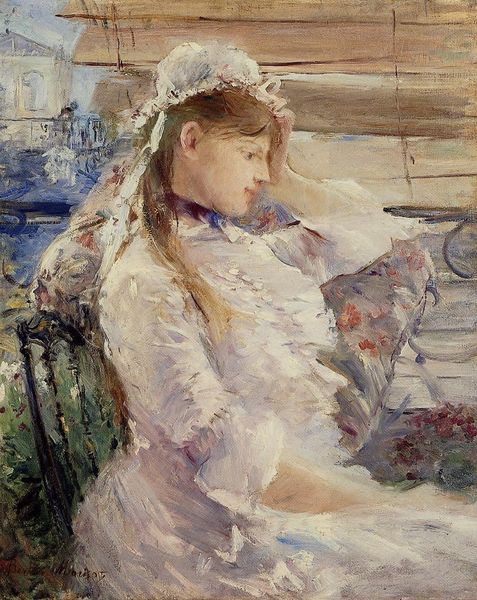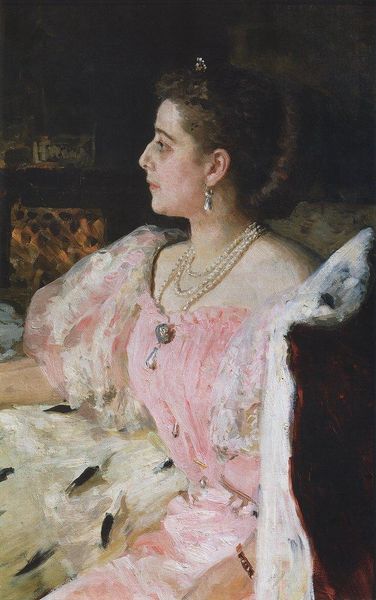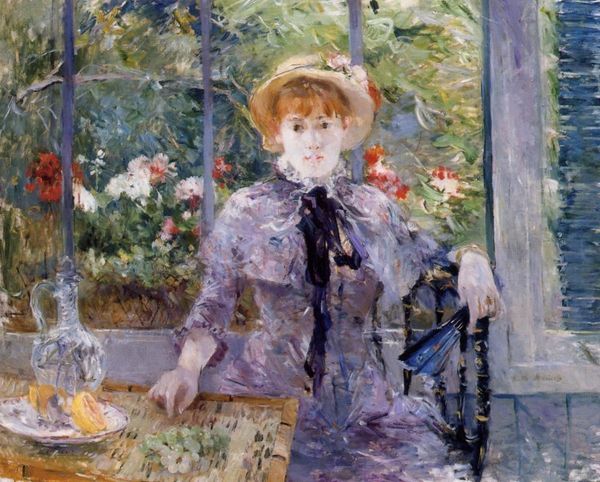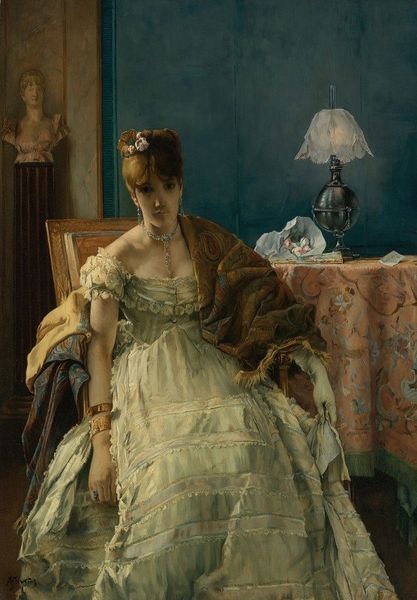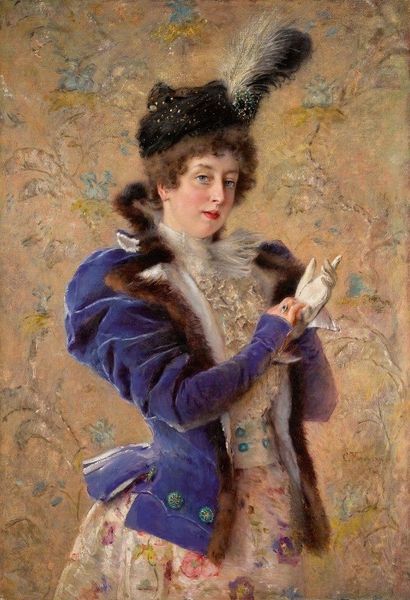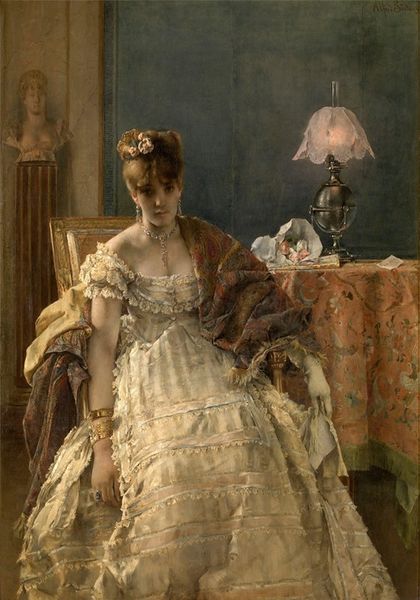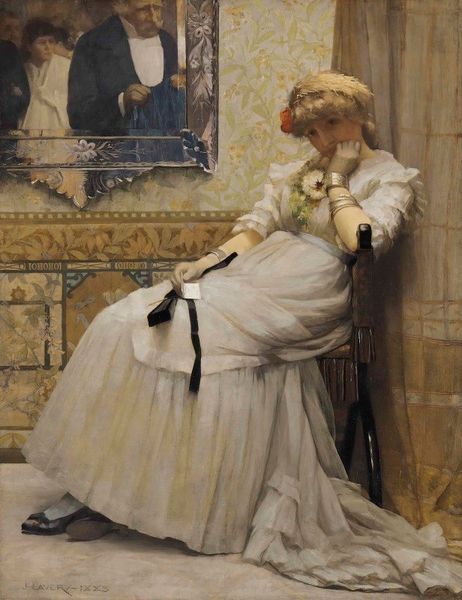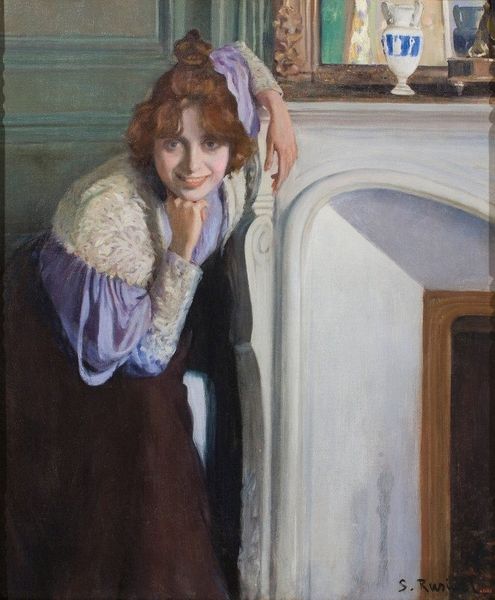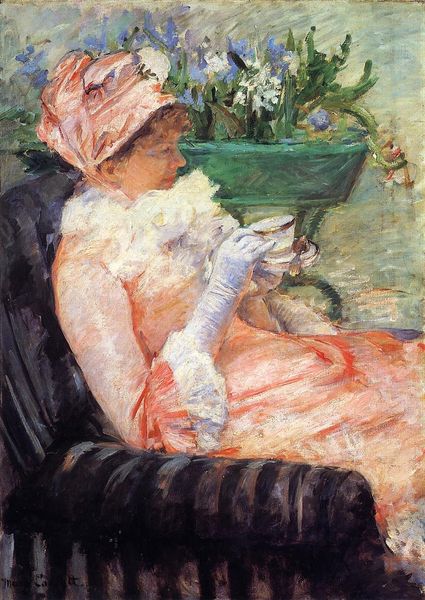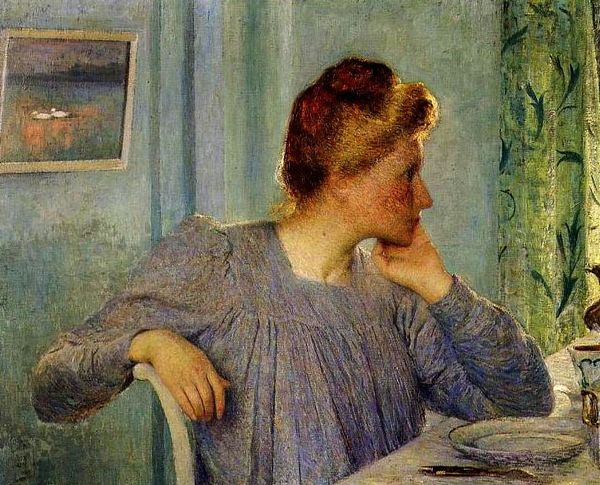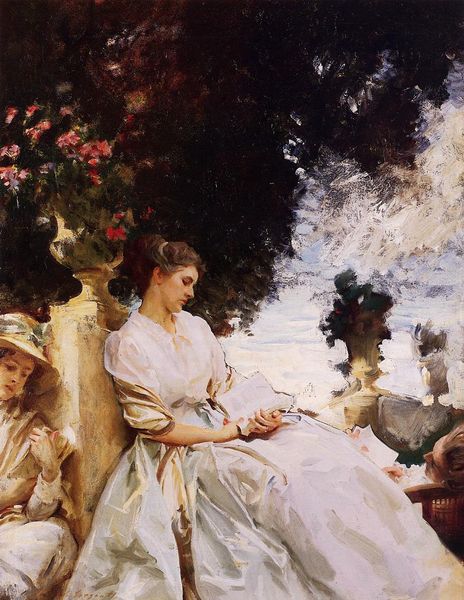
painting, oil-paint
#
portrait
#
painting
#
impressionism
#
oil-paint
#
figuration
#
oil painting
#
genre-painting
#
lady
#
portrait art
Dimensions: 73.6 x 50.2 cm
Copyright: Public domain
Editor: This is Édouard Manet's "Plum," painted in 1878. It’s an oil painting that feels incredibly intimate, almost voyeuristic. There's this woman, alone, with what I think is a plum dessert. What do you make of this work? Curator: Manet here captures a moment of quiet introspection, a slice of modern life increasingly available to women in 19th century Paris. She is in a café, a space where social boundaries were being negotiated. The plum she's eating – a relatively affordable treat – points to the burgeoning consumer culture. What does her cigarette suggest to you? Editor: That's interesting! The plum and cigarette… It makes her feel both accessible and untouchable. Maybe like she's carving out a small bit of freedom in a restrictive society? Curator: Precisely! Consider the political implications of Manet’s focus. He depicts a modern woman enjoying a public space, a place not explicitly defined by domestic expectations, implicitly challenging conventions through her very presence on canvas. The cafe, a newly popular place during Haussmann's urban renovation of Paris, represented a shift in urban planning with the potential for greater mixing between social classes. Does that reframe your initial impression? Editor: Absolutely! It seemed like just a nice painting, but it’s charged with meaning about the changing roles of women. This shifts how I think about impressionism altogether; there's more than just light and color being captured, isn’t there? Curator: Indeed. Artists like Manet used impressionism to investigate contemporary social landscapes, creating a public discourse about shifting societal norms. The artwork thus becomes a key document to investigate a crucial moment in social transformation. Editor: This was eye-opening. I’ll never look at impressionist portraits the same way again! Curator: And I appreciate the reminder to constantly examine how public spaces reflect evolving societal values and challenge conventional portraiture, reflecting changes in the very fabric of everyday life.
Comments
No comments
Be the first to comment and join the conversation on the ultimate creative platform.
